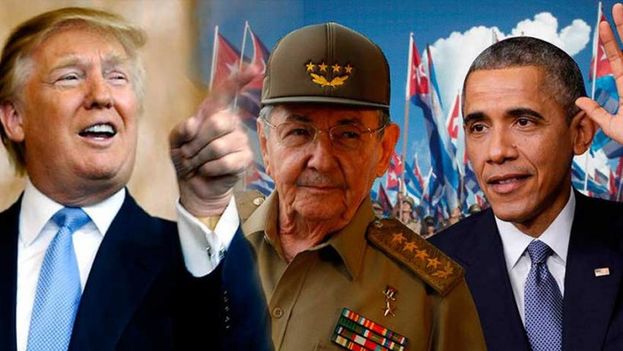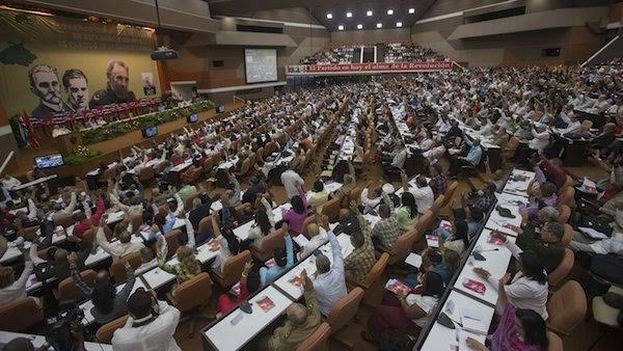
![]() 14ymedio, Luis Tornes Aguililla, Bordeaux, 16 April 2018 — As we already know what is going happen, it matters not if the date of this article is earlier than the date of the appointment of el señor presidente.
14ymedio, Luis Tornes Aguililla, Bordeaux, 16 April 2018 — As we already know what is going happen, it matters not if the date of this article is earlier than the date of the appointment of el señor presidente.
Miguel Diaz-Canel already knows that he was handpicked and perhaps suspects, because he has no other choice, that ultimately, the system improvised by Fidel Castro is a failure in all respects no matter how many billions in debt the capitalists of the Paris Club or the London Club have conceded to Cuba, to mention only two significant examples of the last three years.
The dilemma is simple: to pay a debt you have to work and produce, or steal. It was the Cuban people who paid, between executions and temper tantrums, for the deliriums that Fidel Castro promised, more or less, to make real their pipe dreams. continue reading
A lot of money was needed and that’s how colossal debt amply financed political irresponsibility. It is important that Cubans know that the dramatic story of these last 60 years has mortgaged, because of financial debts – and not just the financial ones – the future of several generations.
So, thus, the question: How can a future democratic government in Cuba confront the reality of the people? Diaz-Canel may know the answer but cannot express it.
Ordinary Cubans live in a black misery with the dual currencies, indecent wages and an unprecedented social disaster because the retractors of the dogma do not want to release the exponential creativity of the Cuban people. Let nobody be mistaken. The Holy Office will watch, with particular interest, the praxis of Diaz-Canel around this issue of freedom of self-empowerment, not so much for philosophical reasons but to avoid any slippage of Cuba towards a society where individuals do not have to depend on the regime.
The Castro regime artifice has been lacking for many years in its terrifying obligatory reality, a reality that the involutionists* will leave to those who come later.
That reality is the cause of the maintenance of the liturgy and the paraphernalia of everything in life, without which, the comrades would find themselves naked before public opinion.
Will Diaz-Canel be left holding the bag once Raúl Castro leaves this world?
Fortunately, in today’s Cuba there is not that massive ignorance of the codes of the world, which is a problem for any candidate for dictator. This is the first reason why Diaz-Canel, and the guards who are watching him, will have to walk a fine line with Cubans who, apart from the usual rowdiness, know what is happening beyond the seas.
A man handpicked cannot pretend to deal with a fed up people who want to abandon their country en masse even if they have to do it by way of Alaska. One can feel the grudge against what people have had to endure. Little by little, millions of Cubans have come to realize that they irremediably lost their youth and their lives in a spasmodic drunkenness paid for, for a very long time, by themselves. When the time comes, perhaps Diaz-Canel will rebel.
*Translator’s note: Involutionists predict the persistence of the worst features of state socialism in a condition of permanent underdevelopment. (See “Post Socialist Pathways,” David Stark and Laszlo Bruszt, 1998)
_____________________
The 14ymedio team is committed to serious journalism that reflects the reality of deep Cuba. Thank you for joining us on this long road. We invite you to continue supporting us, but this time by becoming a member of 14ymedio. Together we can continue to transform journalism in Cuba.


